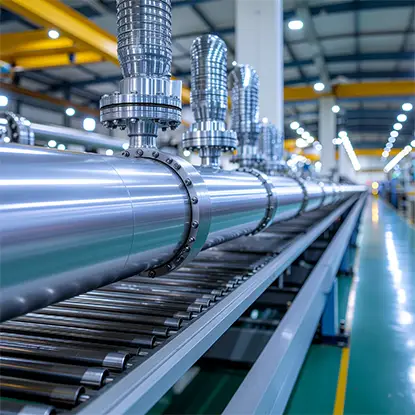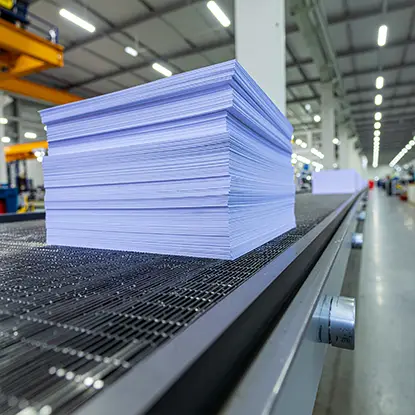ERP Solutions for Manufacturers:
Your 2025 IoT Guide


Producers experience constant pressure to enhance efficiency and reduce expenses swiftly in the face of growing competition in today's rapid industrial environment. As 2025 approaches quickly, modern manufacturing receives a transformative advantage from the integration of ERP systems with Internet of Things technology.

Leverage docAlpha to process operational data faster, improve decision-making, and automate workflows across manufacturing plants. Fully compatible with IoT-enabled ERP systems for maximum efficiency.
Integration has become essential now, rather than a distant idea, for companies urgently attempting to survive in a data-driven world. ERP systems have historically acted as the foundation of manufacturing activities, assisting companies in resource management effectively and improving decision-making processes.
Recommended reading: ERP Software in 2025: The Mindset Driving Growth and Efficiency
The convergence of IoT and ERP creates a centralized system that quickly processes live data from machines, tools, and diverse products in real time. This enables businesses to avoid delays and enhance productivity quickly with elevated quality benchmarks in standard operating conditions. IoT sensors provide ERP platforms with detailed insights on equipment performance, energy consumption metrics, and multiple safety parameters at the same time.
The Importance of IoT in Contemporary ERP Systems:
Reduce Costs and Approval Times in Manufacturing AP
Automate invoice processing across multiple plants and suppliers while maintaining compliance with industry regulations. InvoiceAction integrates directly with your ERP for real-time AP visibility.
Book a demo now
A highly effective use of IoT in ERP is predictive maintenance. Check the Full ERP IT Guide to know how the ERP system streamlines work orders and parts requests, ensuring operations face minimal disruptions.
How Predictive Maintenance Functions:
Recommended reading: How to Streamline Manufacturing Order Processing with ERP-Integrated Sales Order Automation
ERP systems with IoT integration are expected to provide nearly unparalleled visibility into inventory levels by approximately 2025. Nowadays, ERP systems facilitate highly precise demand forecasting and shelf-life management in sectors such as food production and pharmaceutical manufacturing.
Essential Aspects of Intelligent Inventory:

Connect OrderAction to your ERP to process orders instantly from email, EDI, or PDFs - freeing your team to focus on production and customer service.
Devices connected through IoT provide ERP systems with essential information regarding manufacturing settings, including temperature variations and the status of machine calibration, at the same time. Systems routinely log pertinent information for future audits and different industry certifications.
How ERP and IoT Enhance Quality:
Recommended reading: Master ERP Integration - Proven Practices for Maximum Impact
Check the Full ERP IT Guide to know how ERP systems optimize workflows or reallocate resources efficiently by utilizing data from IoT devices, such as production rates and inventory levels of raw materials.
Automated notifications quickly notify all parties, thereby significantly reducing downtime and greatly improving overall operational efficiency today.
Advantages of Intelligent Production Scheduling:

Streamline every stage of your manufacturing operations by integrating docAlpha’s intelligent process automation with your ERP system. Automate document processing, unify data flows, and gain real-time visibility into production, compliance, and supply chain performance.
Choosing an ERP system in 2025 requires careful assessment to manage increasing IoT integrations successfully within swiftly changing technological environments. Producers need to evaluate supplier scalability carefully, as compatibility challenges often occur due to the questionable support provided by certain suppliers.
Key elements include quickly analyzing real-time data and easily implementing customizable dashboards, as well as ensuring mobile access and open APIs for different stakeholders.
Recommended reading: Learn Best Practices to Streamline Accounts Payable with Automation in the Manufacturing Industry
By 2025, ERP solutions for manufacturers will be completely vital and mostly not truly discretionary in most industrial production scenarios. Dynamic platforms are rapidly emerging today, with IoT integration enabling real-time insights and automation while significantly improving decision-making. The integration of ERP and IoT allows manufacturers to quickly achieve operational excellence and swiftly minimize risks in an extremely unpredictable environment. Factories adopting interconnected ecosystems rapidly are set to dominate industrial environments with IoT-based ERP systems already well integrated into future settings.